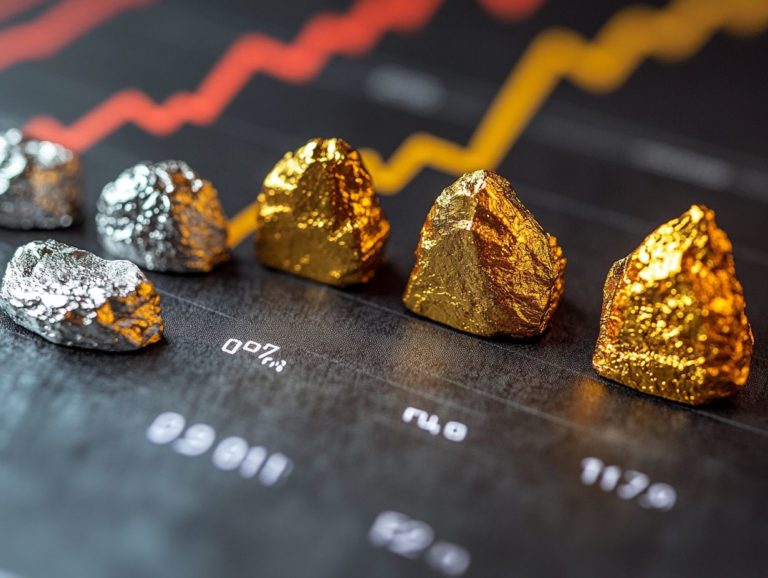Tax Considerations When Investing in Rare Coins
Investing in rare coins can be an exhilarating journey. However, it s crucial for you to understand the specific tax implications involved.
This article explores the nuances of capital gains tax and collectibles tax, guiding you through the financial ramifications of your investments. Before diving into this unique market, it s essential to weigh factors such as expected returns and the expertise needed to navigate it effectively.
Discover strategies to minimize your tax liability and ensure your investment operates efficiently. Equip yourself with the knowledge to make informed decisions in the realm of rare coin investments.
Contents
- Key Takeaways:
- Tax Implications of Rare Coin Investments
- Factors to Consider Before Investing
- Strategies for Reducing Tax Liability
- Holding Period and Timing of Sales
- Structuring Investments for Tax Efficiency
- Frequently Asked Questions
- What are tax considerations when investing in rare coins?
- Are gains from rare coin investments taxable?
- Are losses from rare coin investments tax deductible?
- How are rare coins taxed differently from other investments?
- Are there any tax benefits to holding rare coins for a longer period?
- Do I have to pay taxes on rare coins I inherit?
Key Takeaways:
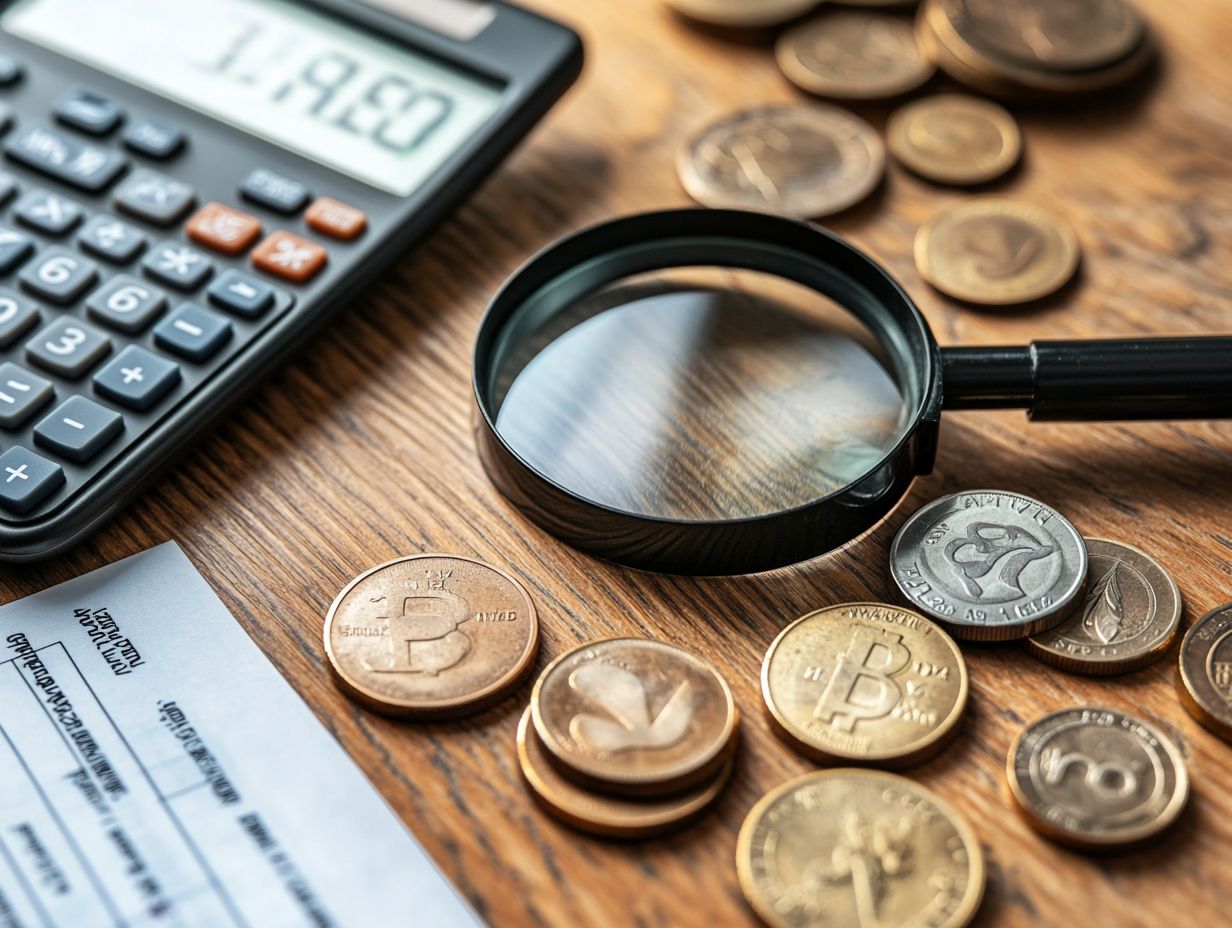
- Understand the tax implications of investing in rare coins, including capital gains and collectibles tax.
- Consider factors such as potential returns, risks, and expertise before investing in rare coins.
- Strategize for tax efficiency by looking at the holding period and timing of sales, as well as structuring investments effectively.
What are Rare Coins?
Rare coins, often seen as unique collectibles, include a wide range of physical assets, such as gold coins, silver dimes, and notable pieces like the American Gold Eagle and Canadian Gold Maple Leaf.
These treasures not only offer a glimpse into history but also serve as compelling investment strategies for collectors and investors alike. The true allure of rare coins lies in their remarkable ability to link the past to the present.
You may be drawn to specific types, such as commemorative coins or limited-mintage pieces. As you consider key factors like grading, which means assessing the coin’s quality, demand, and market trends, you’ll be able to better evaluate their value.
For example, silver coins often attract those looking to hedge against inflation, while gold coins are commonly seen as symbols of wealth preservation. The collectibles market thrives on values shaped by rarity and demand, creating exciting opportunities for smart investors to diversify their portfolios.
This captivating hobby beautifully intertwines art, economics, and history.
Tax Implications of Rare Coin Investments
Understanding the tax implications of rare coin investments is essential for you as a collector or investor. The IRS categorizes these assets in ways that can affect capital gains and collectible gains, ultimately shaping your taxable income and overall investment strategy.
Capital Gains Tax
Capital gains tax is crucial to consider when selling rare coins. Any taxable gain you realize from the sales proceeds falls under IRS regulations, which can lead to different tax liabilities based on your holding period and the classification of your gains.
You need to differentiate between short-term and long-term capital gains taxes. Short-term gains apply to assets held for less than a year and are taxed at ordinary income rates. In contrast, long-term gains benefit from lower tax rates if you’ve held the assets for over a year.
This distinction emphasizes the significance of holding period strategies. Long-term ownership can significantly reduce your tax burden.
If you aim to enhance your financial outcomes, consulting a tax professional could be wise. You should also consider strategies like tax-loss harvesting or using retirement accounts. These can provide unique pathways to minimize your overall tax liabilities, enabling you to make informed decisions in the rare coin market.
Collectibles Tax
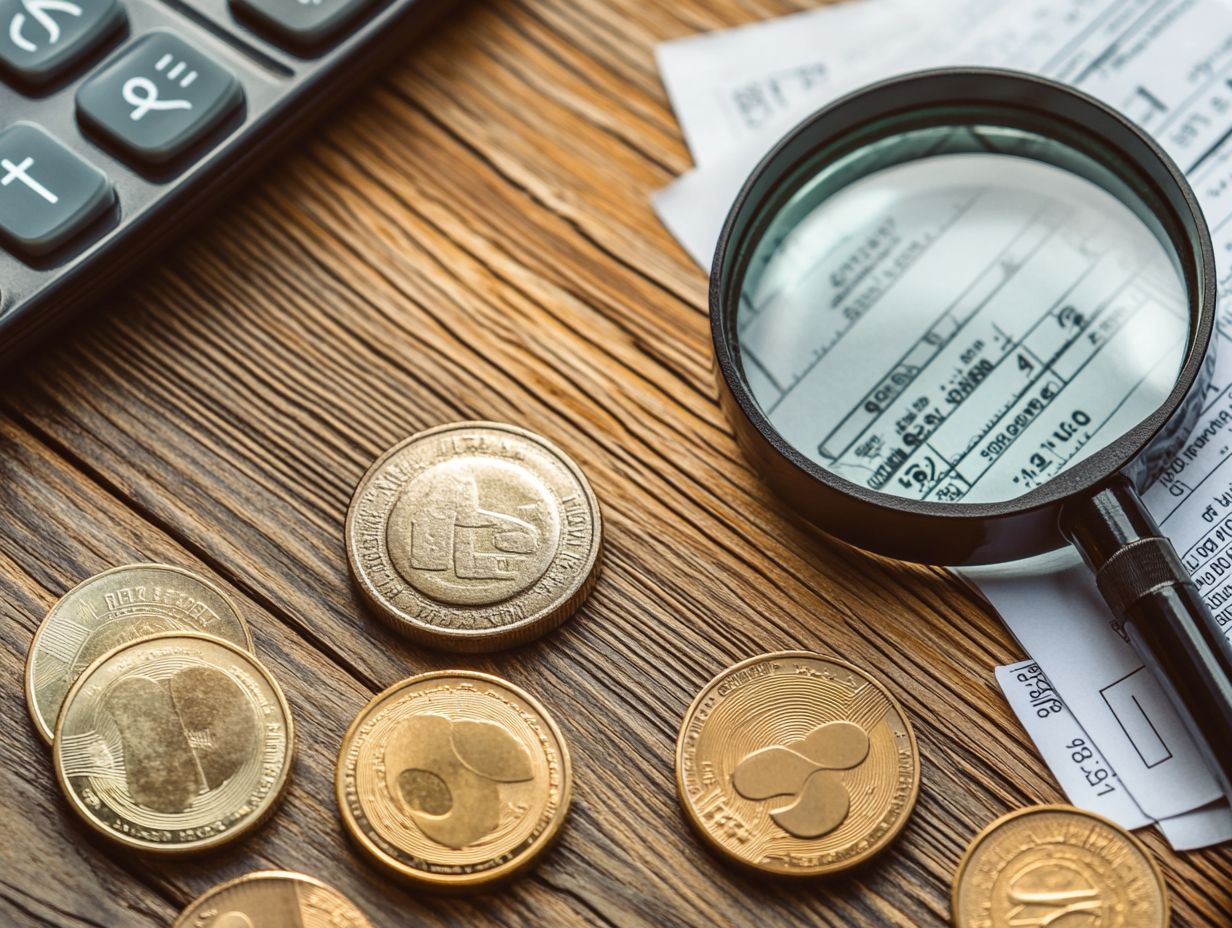
The collectibles tax targets items classified as collectibles by the IRS. It creates unique tax considerations for rare coin investors.
The tax rate on collectible gains surpasses that of regular capital gains, which impacts your taxable income. This classification requires diligence when calculating profits. It’s vital for preparing your tax returns.
Unlike standard capital gains, which typically enjoy lower tax rates, collectible gains can be taxed at a maximum rate of 28%. Such a rate can significantly diminish your overall investment returns in rare coins. Understanding the nuances of this taxation is crucial.
Consulting with tax professionals can help you strategize effectively to reduce your tax burden.
Factors to Consider Before Investing
Before you dive into rare coin investments, assess a range of factors. Consider potential returns alongside the risks tied to market value fluctuations.
Reflect on the historical trends of precious metals. Ensure your investment strategy aligns seamlessly with your broader financial goals.
Potential Returns and Risks
The potential returns on rare coin investments can be enticing, especially considering the historical appreciation of physical gold and other precious metals.
However, navigate the inherent risks that come with trading coins in a volatile market. Many investors are drawn to this unique arena in pursuit of higher returns compared to traditional investment avenues.
Historical appreciation rates for rare coins particularly those tied to significant events or notable figures can significantly outpace standard stock market returns over time.
Maintain a robust investment strategy that accounts for market trends and potential fluctuations. Diversifying your portfolio and staying informed about key economic indicators can help you mitigate risks.
This allows you to enjoy the thrill of acquisition and the possibility of substantial returns.
Expertise and Market Knowledge
Gaining expertise and market knowledge in rare coin investments is essential. Understanding the nuances of collectibles and the dynamics of trading coins can profoundly influence your investment strategy.
By immersing yourself in coin grading, historical significance, and market trends, you re more likely to make informed decisions. This insight shapes your purchasing strategies and the timing of when to sell or trade coins, enhancing your potential returns.
By developing a solid grasp of the factors that drive coin values such as rarity, demand, and condition you equip yourself to navigate the market with confidence.
A thorough understanding of this landscape enables you to make smarter choices, minimizing risks and maximizing gains in this specialized financial sector.
Strategies for Reducing Tax Liability
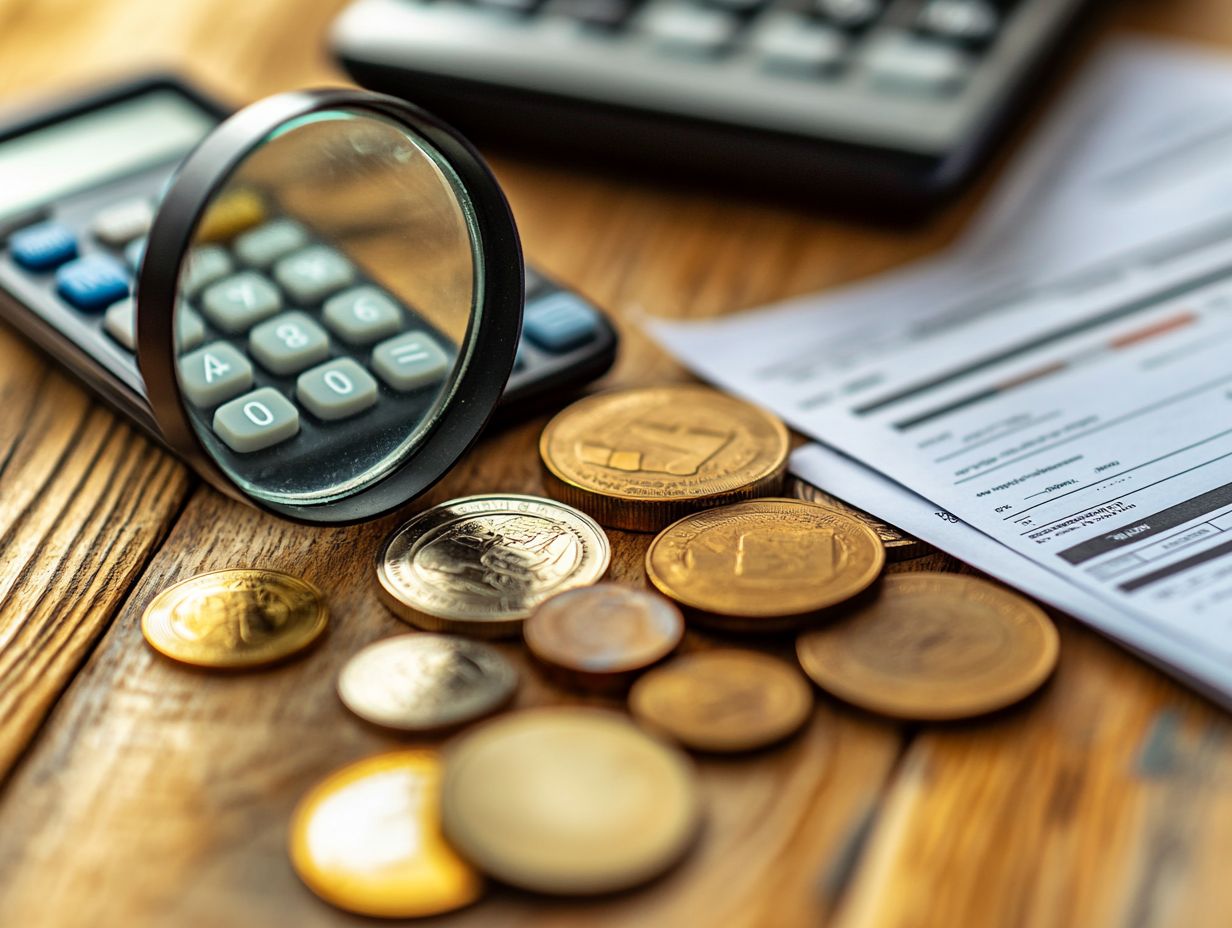
To reduce tax liability in rare coin investments, craft effective strategies through meticulous tax planning.
Consider various factors, including the holding period of your assets. Evaluate the investment expenses you incur and any potential loss offsets that could influence your tax bracket.
Each of these elements plays a crucial role in shaping a smart, tax-efficient investment approach.
Holding Period and Timing of Sales
The holding period and timing of your sales are crucial elements that can greatly influence the tax on profits from selling investments on rare coins. These factors shape your overall investment strategy and the tax implications tied to each transaction.
You should thoughtfully consider how long you hold your assets before selling. This decision dictates whether your gains are deemed short-term or long-term, each with its own tax rates. Generally, holding an asset for more than a year can lead to more favorable tax treatment, benefiting from lower rates on long-term gains, which can ultimately boost your overall returns.
Timing your sales wisely can unlock your potential profits from your rare coin investments. Align your decisions with market conditions and your personal financial situation to minimize tax liabilities.
Structuring Investments for Tax Efficiency
Structuring your investments for tax efficiency means crafting a strategy that aligns seamlessly with IRS regulations. By utilizing options like self-directed IRAs a type of retirement account that you manage yourself you can maximize tax benefits while investing in rare coins and precious metals.
This strategy protects your assets and diversifies your portfolio. With the unique advantages offered by self-directed IRAs, you can acquire a broader range of collectible coins, bullion, and other valuable assets.
Consider strategies like tax-loss harvesting and long-term capital gains tax strategies to significantly enhance your overall returns. It’s essential to evaluate custodial fees and compliance requirements, ensuring your investments remain within IRS guidelines while capitalizing on the potential appreciation of your rare coin collection.
Frequently Asked Questions
What are tax considerations when investing in rare coins?
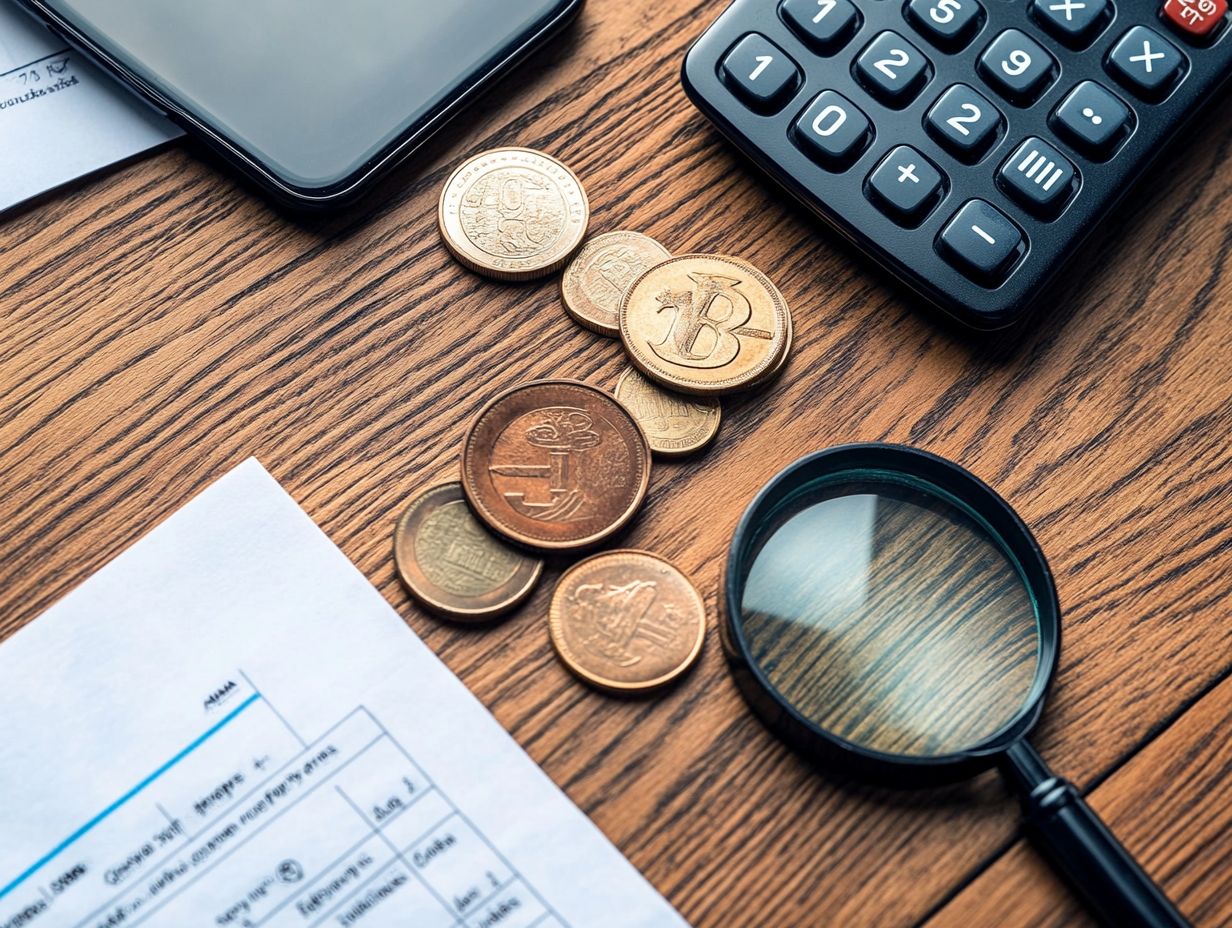
Tax considerations when investing in rare coins include reporting gains and losses on your taxes, understanding the difference between collectible and investment coins, and potential tax benefits of holding rare coins for longer periods.
Are gains from rare coin investments taxable?
Yes, gains from rare coin investments are taxable. Any profits made from selling rare coins are considered capital gains and must be reported on your taxes.
Are losses from rare coin investments tax deductible?
Yes, losses from rare coin investments can be tax deductible. Selling rare coins at a loss may help you reduce your taxable income. However, there are limitations, so it’s best to consult with a tax professional.
How are rare coins taxed differently from other investments?
Rare coins are considered collectibles by the IRS and are therefore taxed differently from traditional investments such as stocks and bonds. The tax rate for collectibles is typically higher, with a maximum rate of 28% for long-term gains.
Are there any tax benefits to holding rare coins for a longer period?
Yes, there are potential tax benefits to holding rare coins for longer periods. If you hold onto your rare coins for more than one year, you may be eligible for long-term capital gains tax rates, which can be lower than short-term rates.
Do I have to pay taxes on rare coins I inherit?
It depends on the value of the coins and your overall tax situation. Inheritances are typically not considered taxable income. However, if you sell the rare coins and make a profit, you will need to report that on your taxes. Consult with a tax professional for specific guidance in your situation.













